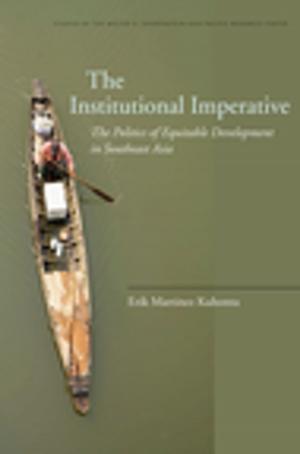Waging War
Alliances, Coalitions, and Institutions of Interstate Violence
Nonfiction, Social & Cultural Studies, Political Science, International, International Security| Author: | Patricia A. Weitsman | ISBN: | 9780804788946 |
| Publisher: | Stanford University Press | Publication: | December 18, 2013 |
| Imprint: | Stanford Security Studies | Language: | English |
| Author: | Patricia A. Weitsman |
| ISBN: | 9780804788946 |
| Publisher: | Stanford University Press |
| Publication: | December 18, 2013 |
| Imprint: | Stanford Security Studies |
| Language: | English |
Military alliances provide constraints and opportunities for states seeking to advance their interests around the globe. War, from the Western perspective, is not a solitary endeavor. Partnerships of all types serve as a foundation for the projection of power and the employment of force. These relationships among states provide the foundation upon which hegemony is built. Waging War argues that these institutions of interstate violence—not just the technology, capability, and level of professionalism and training of armed forces—serve as ready mechanisms to employ force. However, these institutions are not always well designed, and do not always augment fighting effectiveness as they could. They sometimes serve as drags on state capacity. At the same time, the net benefit of having this web of partnerships, agreements, and alliances is remarkable. It makes rapid response to crisis possible, and facilitates countering threats wherever they emerge. This book lays out which institutional arrangements lubricate states' abilities to advance their agendas and prevail in wartime, and which components of institutional arrangements undermine effectiveness and cohesion, and increase costs to states. Patricia Weitsman outlines what she calls a realist institutionalist agenda: one that understands institutions as conduits of capability. She demonstrates and tests the argument in five empirical chapters, examining the cases of the first Gulf War, Kosovo, Afghanistan, Iraq, and Libya. Each case has distinct lessons as well as important generalizations for contemporary multilateral warfighting.
Military alliances provide constraints and opportunities for states seeking to advance their interests around the globe. War, from the Western perspective, is not a solitary endeavor. Partnerships of all types serve as a foundation for the projection of power and the employment of force. These relationships among states provide the foundation upon which hegemony is built. Waging War argues that these institutions of interstate violence—not just the technology, capability, and level of professionalism and training of armed forces—serve as ready mechanisms to employ force. However, these institutions are not always well designed, and do not always augment fighting effectiveness as they could. They sometimes serve as drags on state capacity. At the same time, the net benefit of having this web of partnerships, agreements, and alliances is remarkable. It makes rapid response to crisis possible, and facilitates countering threats wherever they emerge. This book lays out which institutional arrangements lubricate states' abilities to advance their agendas and prevail in wartime, and which components of institutional arrangements undermine effectiveness and cohesion, and increase costs to states. Patricia Weitsman outlines what she calls a realist institutionalist agenda: one that understands institutions as conduits of capability. She demonstrates and tests the argument in five empirical chapters, examining the cases of the first Gulf War, Kosovo, Afghanistan, Iraq, and Libya. Each case has distinct lessons as well as important generalizations for contemporary multilateral warfighting.















